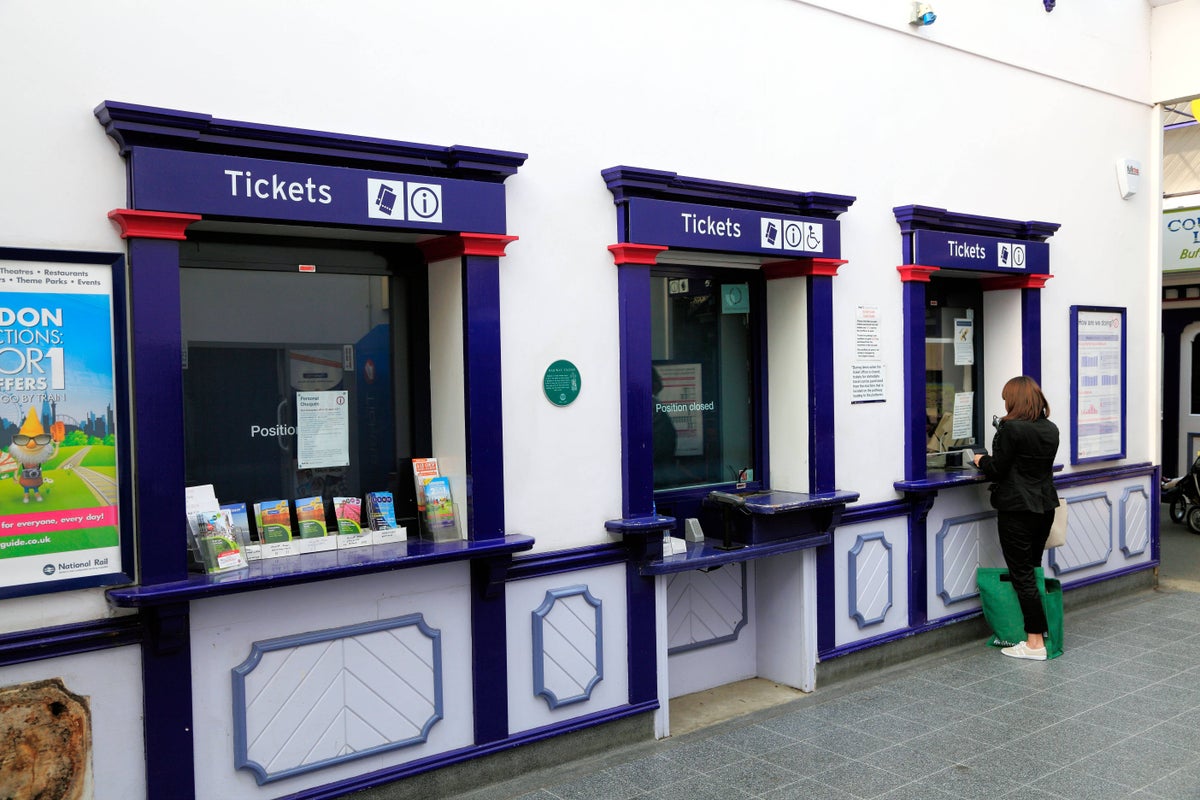Ticket Offices (Parliament Politic Magazine) – Train companies are moving forward with their plans to shut down numerous station ticket offices throughout England within the next three years. According to the proposals, a few ticket kiosks will still be operational in major stations, while in other locations, staff will be available on concourses to facilitate ticket sales, provide travel guidance, and assist individuals with accessibility needs. However, these plans have raised concerns among unions and disability groups, who worry about the potential consequences. In response, a 21-day public consultation has been initiated to gather the opinions and perspectives of passengers.
Train Companies Set to Shutter Ticket Offices Nationwide
Prominent posters have been prominently displayed across multiple stations, extending a cordial invitation to the public to actively participate in a crucial decision-making process. Following this, the government will exercise its authority to determine the specific offices that will be closed. At present, it is worth noting that a ticket office can be found in approximately three out of every five stations, albeit with some stations only offering part-time staffing.
This contentious issue has become the latest flashpoint in an ongoing saga between train companies and unions. The two parties have been embroiled in a protracted dispute, grappling with contentious matters such as wages, employment opportunities, and working conditions. As a result, a series of strikes have been staged since the onset of last summer.
The rail industry is currently facing immense pressure from the government to reduce costs, following extensive support provided during the Covid-19 pandemic. Jacqueline Starr, the Chief Executive of the Rail Delivery Group (RDG), which serves as the representative body for train companies, emphasized the need for the railway to adapt to the evolving ticket-purchasing habits of our customers. In light of this, she expressed that it is high time for the industry to embrace change and implement necessary adjustments gradually.
Major Ticket Office Shutdowns Announced by Rail Operators
According to her, a mere 12% of tickets were sold at ticket offices last year, while the majority were purchased online or from vending machines. According to the RDG, under the proposed plans, things will become a little different. The passengers who are unable to purchase a ticket beforehand will have the option to buy one during their journey.
It will happen at a ticket office en route or at their destination. However, numerous rail users, who heavily depend on assistance from ticket offices, express concerns. These changes will create additional obstacles for their travel experiences.
Robert Calvert, a 75-year-old resident of Tamworth, expresses his struggle with dyslexia and color blindness. It will significantly hinder his ability to navigate self-service machines. He laments the increasing reliance on automation, emphasizing that not everyone possesses a smartphone in today’s world. Consequently, he feels somewhat excluded and left behind by these technological advancements.
Similarly, Ann Jolly, a 78-year-old individual residing in Emsworth, Hampshire, frequently relies on train travel to visit her homeland in Scotland. However, she finds the complexity associated with purchasing train tickets discouraging and off-putting.
Both Robert and Ann’s experiences shed light on the challenges faced by individuals with specific disabilities or limited technological access. As society continues to embrace automation, it is crucial to consider the diverse needs and preferences of all individuals. It ensures inclusivity and equal opportunities for everyone.
Read More: Rail Passengers In The UK Warned Due To An Overtime Ban In The Aslef Union
Train Firms Chart a New Course in Passenger Services
According to the RDG, staff will be easily accessible on the concourse or platform to assist passengers with journey planning and ticket sales, ensuring their availability remains unchanged. Nevertheless, the UK’s largest rail union, the RMT, and the TSSA union have expressed concerns that these plans may result in job reductions.
In addition, certain disability advocates have strongly opposed this concept. Vivienne Francis, representing the Royal National Institute of Blind People (RNIB), has emphasized the negative impact it would have on individuals with visual impairments. She pointed out that only 3% of blind and partially-sighted individuals are capable of using automated machines, making this proposal detrimental to their needs.
People desire adaptable and well-informed employees who are not confined behind a glass screen. However, they also seek assurance that they are making the right purchase at the appropriate price. The Rail Delivery Group (RDG) stated that the decision to shut down ticket offices was a response to union-led industrial action.

